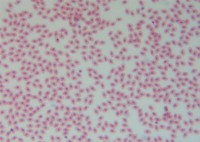
Heat is one of the body’s primary defense mechanisms against disease. It is the reason you run a fever when you’re fighting the flu or an infection. Heating cells well beyond their normal tolerance can eliminate the harmful substances that are making you ill.
What Is Hyperthermia?
Hyperthermia, also called Thermal Therapy, is rooted in this natural defensive strategy and can be a valuable component of integrative cancer treatment. In hyperthermia, the entire body or the diseased portions of the body are purposefully heated to produce a therapeutic response.
When administered by Issels experienced cancer treatment teams as part of our immunobiologic core treatment for cancer, hyperthermia has produced beneficial results for many cancer patients. The healing technique is used not only at Issels Centers for Integrative Oncology, but also at a number of well-known university hospital centers in the U.S. and Europe.
History of Hyperthermia
The use of fever therapy can be traced back to the early Greeks and Romans. Hippocrates, the father of medicine, wrote, “Give me the power to produce fever, and I will cure all disease.”
Over the centuries, fever therapy has been a common disease treatment used by Native Americans, Chinese, Japanese and 18th century Europeans. In the 19th century, German physicians saw sarcoma regression or cure in patients who had endured high fevers from infectious diseases.
Hyperthermia and Cancer
Hyperthermia continues to be a valid disease-fighting treatment. Beginning in the 1950s, our founder Dr. Josef M. Issels administered fever therapy to thousands of cancer patients with remarkable results. There is continued and strong evidence that hyperthermia stimulates and regulates the immune system and is especially beneficial to cancer patients.
Visit our website to find out more about hyperthermia and other alternative cancer treatments.





